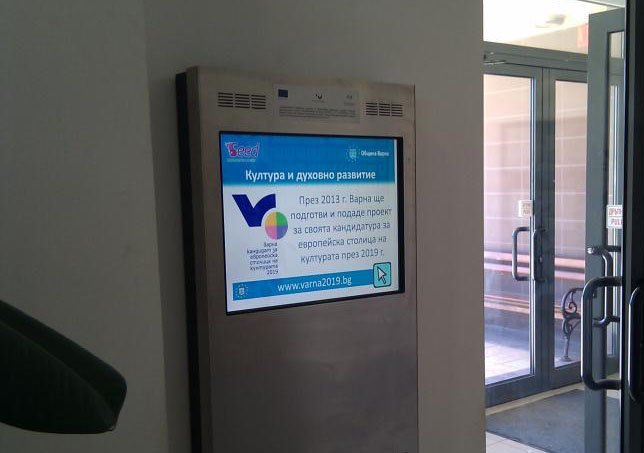The platform is implemented under the European Project SEED. The consulting firm has already implemented 12 projects with European funding, including the deployment of ERP software, RFID system and other sophisticated technological solutions. The Bulgarian consulting company Balkan Services successfully implemented a platform, giving the citizens of Varna access to the services provided by the Municipality, through the available 21 information kiosks in its territory. The platform is built as part of the international project SEED, whose main purpose is to provide greater access to information about municipal services and other useful data. The project is financed under the Competitiveness and Innovations program, which accepts project proposals directly in Brussels. It involves 12 partners from seven countries: Spain, Croatia, Latvia, Cyprus, Czech Republic, Romania and Bulgaria. The emphasis is on participation of the new EU member states, where the implementation and use of electronic services by municipal and state administration is less developed. In Bulgaria, the project partners are the Municipality of Varna and the consulting company Balkan Services.
The company already has 12 projects with European funding behind its back, out of which nine are under operational programs in Bulgaria and the rest are funded directly by the European Commission. Among them are such complex projects as the implementation of ERP (Enterprise Resource Planning), software systems for managing warehousing activities via wireless technology RFID (Radio Frequency Identification), maintenance of production machines and other sophisticated technological solutions. The SEED project, which will be completed in 2014, will contribute to the easier access of citizens of Varna to a variety of useful information such as cultural, educational and social initiatives of the municipality, job vacancies in the region, important information about the European Union and the European Commission, job vacancies throughout Europe and others. In order for the information to reach the widest possible range of people, the project is making use of the existing municipal network of kiosks, which are interactive screens installed at key locations in the city (municipal and local administrations, the Sports Hall, tourist information offices, shopping centers, etc.).

